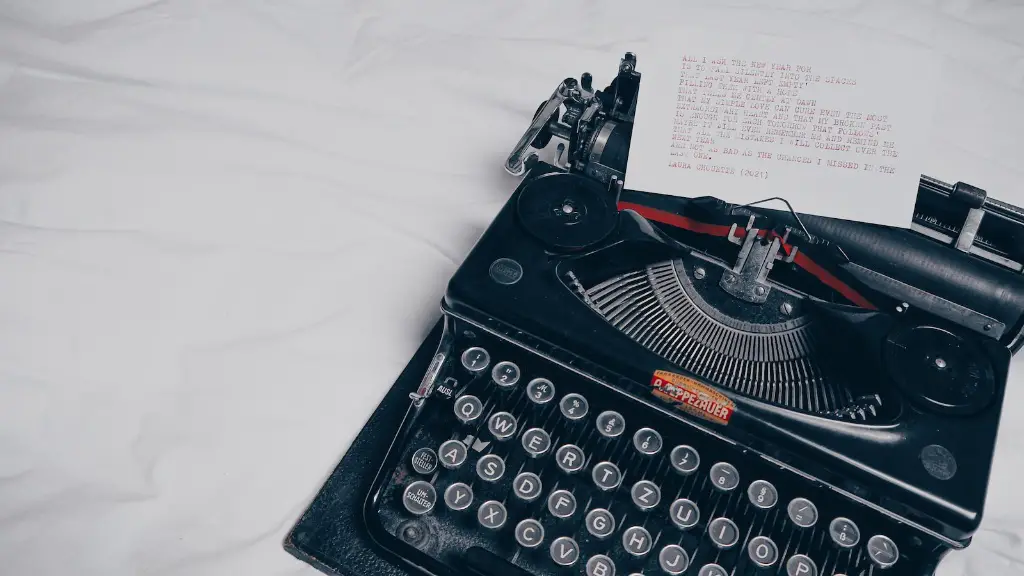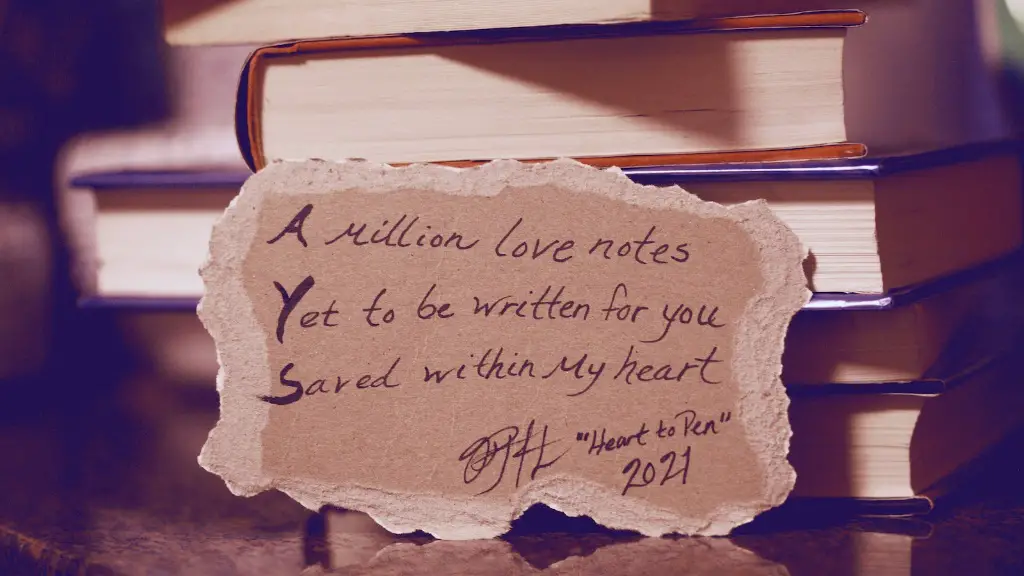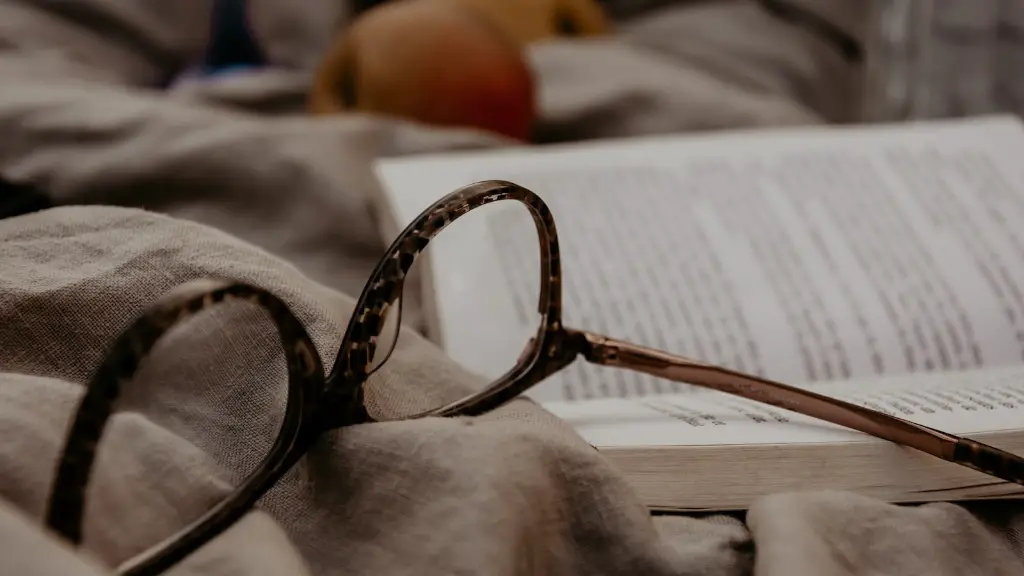Dramatic poetry is an art form that has captivated audiences since the earliest days of antiquity. This poetic form combines creative expression, language and performance, making it an inherently captivating form of literature. It is defined as a poem composed in a play format, usually written in the form of a dialogue between characters. Throughout history, it has been used to explore themes of love and loss, tragedy and triumph, and life’s complexities.
To understand dramatic poetry, it is important to understand its relationship with other forms of literature. While it shares many similarities with plays, it is important to note that dramatic poetry contains its own unique features. Whereas plays are typically composed as linear narratives, dramatic poetry is often episodic and uses poetic devices such as metaphor and imagery. Whereas plays often rely on plot twists, dramatic poetry emphasizes language and emotion.
Dramatic poetry is usually composed in the form of a dialogue between two or more characters, often with one character taking the role of the protagonist and the other taking the role of the antagonist. This structure allows poets to explore complex themes through their characters’ conversations. For example, the iconic playwright William Shakespeare used dramatic poetry to explore the nuances of jealousy, revenge, and undying love in his works.
The structure of dramatic poetry also allows poets to emphasize the emotionality of their work and create an engaging experience for their audience. By utilizing poetic devices such as imagery, metaphor, and alliteration, poets are able to give their work an added level of depth and meaning. Additionally, by utilizing varying structures, such as meter and rhyme, poets are able to emphasize key words and phrases and add to the overall emotionality of their work.
For those interested in composing dramatic poetry, there are a few factors to consider when it comes to the process. Firstly, concept and character developmment are important factors to consider. An effective dramatic poem conveys a theme or mood through the interactions between the characters. Additionally, poets should consider the narrative structure of their poem and consider how the characters’ conversations build throughout the poem.
Finally, poets should strive to create a believable world within their poem. By utilizing elements such as setting and symbolism, poets can create a vivid and engaging world for readers to inhabit. Additionally, poets should ensure that their dialogue is engaging and that they incorporate elements of surprise throughout the poem.
Understanding the Historical Context
The history of dramatic poetry can be traced back to Ancient Greece where poetry, drama and literature were prevalent forms of entertainment. As the artform evolved, so did the use of the form in literature. During the 18th and 19th centuries, the form was used to explore a wide array of topics, from politics to religion. Additionally, the form was also used to explore themes of love and loss, morality and mortality. Many iconic poets throughout the centuries have used dramatic poetry as a means of exploring existential themes and delving into complex topics.
In recent years, dramatic poetry has re-emerged as an increasingly popular form of expression. Many modern poets have embraced the form in order to explore a wide variety of topics and to engage their audiences in an emotive and meaningful way. Additionally, the form is starting to be used in other forms of art, such as spoken word and rap.
Exploring Different Genres and Styles
There are a number of different genres and styles that poets can explore through dramatic poetry. Tragedy is one of the most common genres of dramatic poetry, and is often used to explore themes such as loss, human suffering, and mortality. Additionally, comedy is also a popular genre, and can be used to explore a range of topics, from politics to relationships.
Not only can dramatic poetry explore a variety of topics, but poets can also explore a wide range of styles. For example, poets can use archaic language and structures to invoke the mood and atmosphere of Ancient Greece. Additionally, poets can also use modern language and structures to create more contemporary works.
Expression Through Performance
Dramatic poetry is often used as a form of performance art, allowing poets to share their work in an interactive and engaging way. By taking the time to create effective presentations and to nurture their audience, poets can effectively communicate their work and create a vibrant and emotive atmosphere. Additionally, performance can also allow poets to use dramatic inflections to emphasize key words and phrases, providing their work with added depth and emotionality.
Not only can performance aid in the delivery of a poem, but it can also provide poets with an additional level of scope for their expression. Poets can leverage their performance to bring their characters to life and to evoke the mood and atmosphere of the scenes. Additionally, poets can utilize the physicality of performance to emphasize their emotions and intentions.
Engaging the Audience
Engaging the audience is key to an effective dramatic poem. By creating a vivid, immersive world through language and imagery, poets can captivate their audience and ensure that their work has an impact. Additionally, by creating an emotional connection with their audience through powerful dialogue and engaging performances, poets can ensure that their poems are resonating with audiences across the world.
Poets can also use the structure of their work to create an engaging and emotive experience. By creating episodes within their poem, poets can introduce and explore a range of topics and themes within the same poem. Additionally, by utilizing symbolism, setting, and allusions, poets can create an immersive world for readers to inhabit and engage with.
The Future of Dramatic Poetry
Dramatic poetry is an artform that is unique in both its form and function. By exploring complex themes and expressing emotive stories, dramatic poetry can have a powerful impact on audiences. As technology advances and more outlets for expression open up, it is certain that the form will continue to evolve and become even more popular. Moving forward, poets will continue to find unique ways to explore themes and engage their audiences through this captivating form of literature.
Popular Examples
Throughout history, there have been a range of iconic authors and poets who have explored dramatic poetry as a form of expression. William Shakespeare, the iconic playwright, is one of the most famous dramatic poets of all time. His works combine lyrical language, engaging dialogue, and powerful themes to create captivating stories. Additionally, modern poets such as Mary Oliver and Langston Hughes are also exploring the form in their works, continuing to push the boundaries of the form and creating captivating works.
The Importance of Dramatic Poetry
Dramatic poetry is an important form of literary expression that can have a powerful impact on its readers. By combining language and performance, poets can impart their work with a level of emotion that other forms of literature cannot match. Additionally, the form can Enable poets to explore complex themes and create captivating stories that have the power to move and inspire readers. Moving forward, it is certain that poets will continue to utilize this unique form of expression.




